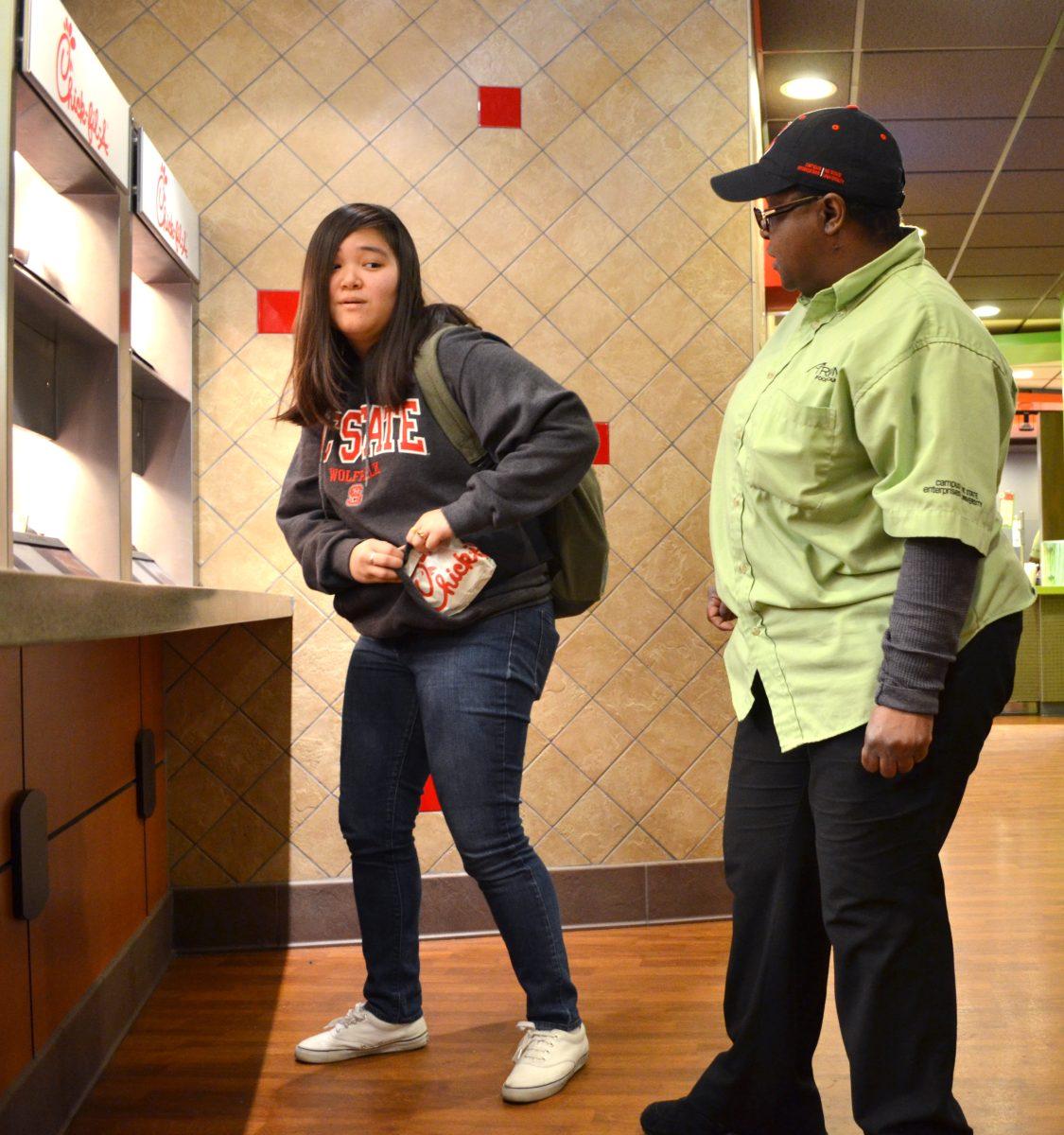Theft is common at the Atrium Food Court, and everyone is a victim, including the perpetrators themselves.
Students have noticed customers of the Atrium shoving food into their pockets, purses and book bags, especially during the lunch and dinner rush. Amidst long lines and hectic traffic, it is difficult for Atrium staff to keep up with everything, according to Thomas Jasmine, sophomore arts application major.
“[Atrium customers] do it because they can,” Jasmine said. “During lunch time especially, the chicken sandwiches are easy targets.”
“While theft is not a critical problem for University Dining,” according to Jennifer Gilmore, marketing and communications manager for Campus Enterprises, “the administration has taken notice to the issue.”
“We are aware that people take things they didn’t purchase,” Gilmore said. “It happens, and there’s this notion that it doesn’t hurt anyone.”
Gilmore challenges this notion that on-campus theft is victimless and argues it has the potential to have widespread consequences.
“University dining is completely funded by meal plan purchases and cash register sales,” according to Gilmore. These funds are then used to fund new dining facilities, keeping existing facilities up to date, adding more dining options, and hiring culinary talent. University dining also allocates some of its money to administrative fees, like scholarships, and financial aid.
“When customers take things they didn’t pay for, somebody has to cover that,” Gilmore said. “When people steal, it just diminishes what we’re able to turn around and give back to students … In a sense, they are taking from the student body.”
While Gilmore says the amount stealing has affected University Dining’s budget is hard to quantify, Atrium cashiers have seen theft taking place, and are trained to handle it responsibly and respectfully.
“Another aspect of State affected by stealing is the University’s overall value. N.C. State is widely recognized as a great value, and meal plan prices are very low compared to other schools,” according to Gilmore.
“[The educational value] is part of what makes N.C. State a great place, and we want to keep it that way,” Gilmore said. “We want to keep all the costs low and it challenges our ability to do so when people take things.”
Gilmore also mentioned University Dining’s use of surveillance and computers to combat what she sees as an ethical problem.








